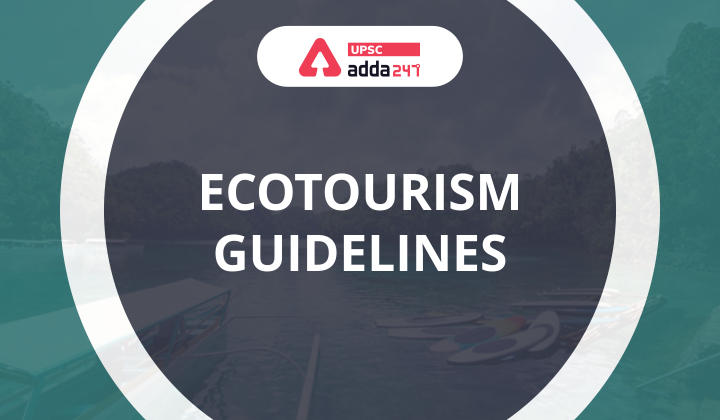Table of Contents
Relevance
- GS 3: Conservation, environmental pollution and degradation, environmental impact assessment.
Context
- Ministry of Environment, Forest and Climate Change has recently released the ‘Guidelines for sustainable Ecotourism in forest and wildlife areas’ for the promotion of better understanding of nature and wildlife conservation.
Key points
- According to the ministry, the new guidelines will be applicable for sites falling in forests, wildlife areas and eco-sensitive zones.
- It will promote a better understanding of nature and wildlife conservation and help in generating livelihood opportunities for communities in those areas.
- Local communities should be engaged in a manner that local economies can be promoted.
- Sustainable use of indigenous material should be encouraged through financially viable value chains to help the communities in becoming self-reliant.
- They also promote partnership among stakeholders in the development of ecotourism as well as equitable sharing of benefits with local communities.
- The guidelines also advocate creation of a foundation in each protected area and sharing of revenue with local communities.
Cities are Taking Climate Action
Dolphin field guide
- The ministry has also released a field guide for monitoring Ganges and Indus river dolphins and their habitat.
- For the first time, a standardized monitoring protocol has been made and will be employed for dolphin enumeration exercise to be undertaken in the states of Assam, West Bengal, Bihar, Jharkhand, Uttar Pradesh, Madhya Pradesh, Rajasthan and Punjab.
- Dolphin estimation is an important process and constituent of “Project Dolphin“.
‘Wetlands of India Portal’
- The environment minister also launched a web portal on the ‘Wetlands of India Portal’
- It will act as single-point access to all information relating to wetlands.
- A dashboard for each state and Union Territory has been developed to access the portal and populate it with information of wetlands in their administration.
- The new web portal will also provide a monitoring mechanism at all the three levels—national, state and district.




 TSPSC Group 1 Question Paper 2024, Downl...
TSPSC Group 1 Question Paper 2024, Downl...
 TSPSC Group 1 Answer key 2024 Out, Downl...
TSPSC Group 1 Answer key 2024 Out, Downl...
 UPSC Prelims 2024 Question Paper, Downlo...
UPSC Prelims 2024 Question Paper, Downlo...




